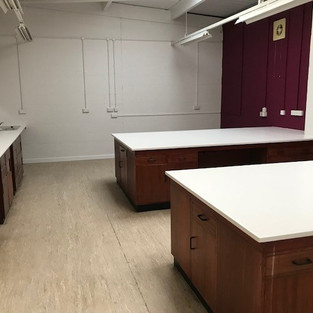The Matthew Project is creating a brand new centre in Norwich for people in recovery from addiction.

The Next Steps Recovery Centre, based on Oak Street, will be the first of its kind in Norfolk, providing a space where those in recovery can learn new skills, access support, and be part of a new recovery community.
The first phase of development for Next Steps has been completed, and work with veterans and people in recovery is already under way. When fully complete, Next Steps will include a café, open to the public, a skills and employability workshop, an exercise studio, one-to-one therapy rooms, an IT suite, an art studio, and areas for group support. The centre will support hundreds of people per year, including people in recovery, veterans, and children affected by a parent or carer’s substance misuse.
Initial funding for Next Steps was awarded by Norfolk County Council and Public Health England. The Matthew Project are currently seeking an additional £250,000 for the final phase of refurbishment, which will see the centre officially opening later in the year.
Andy Sexton, CEO at the Matthew Project, said: “Our hope is that by providing a safe place, where people can find new friends, new community, new support networks and new skills, we will be able to empower people to move on from treatment and into healthier, fuller lives. Children who are affected by their parents’ addiction, and veterans with PTSD and drug and alcohol issues, will also receive help through tailored activities at the centre.”
Drug misuse is a big issue both locally and nationally, and even once somebody is in recovery from addiction, relapse remains a risk. The relapse rate for substance misuse is typically between 40% and 60%. For alcohol, this figure is higher, with 90% relapsing within four years. However, the data also shows that the longer somebody remains abstinent, the lower their risk of relapse. The first year of recovery is crucial, and sees average relapse rates drop from 50% at the beginning to 30% at the end. After five years of abstinence, this figure drops to 15%. Therefore, supporting people in the early stages of recovery – and beyond – can significantly reduce their risk of relapse.
People who have long-term alcohol or drug problems can lose contact with friends and family and start to feel isolated, putting them at risk of relapse. Therefore a focus on community is essential in reducing this risk.
Donations can also be made via the Matthew Project’s Total Giving page: https://www.totalgiving.co.uk/appeal/Next-steps-recovery-centre






